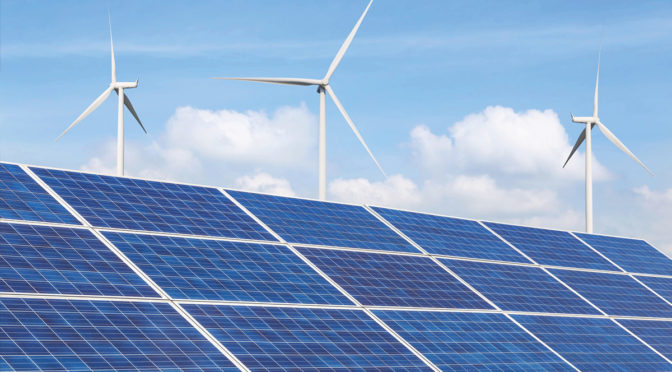The future of renewable energy in Equatorial Guinea is looking brighter than ever, as the country explores the potential of solar, wind, and hydro power in its renewable energy landscape. With a growing population and increasing demand for electricity, Equatorial Guinea is taking significant steps to diversify its energy sources and reduce its dependence on fossil fuels. This shift towards renewable energy not only contributes to global efforts to combat climate change but also presents a unique opportunity for the country to achieve sustainable economic growth and improve the quality of life for its citizens.
One of the most promising renewable energy sources in Equatorial Guinea is solar power. The country’s location near the equator provides it with abundant sunlight throughout the year, making it an ideal candidate for solar energy generation. According to a recent study by the International Renewable Energy Agency (IRENA), Equatorial Guinea has the potential to generate up to 3,000 megawatts (MW) of solar power, which could significantly contribute to the country’s energy mix and help meet its growing electricity demand.
To tap into this potential, the government of Equatorial Guinea has initiated several solar power projects in recent years. For instance, in 2018, the country signed a memorandum of understanding with the multinational company Atlas Renewable Energy to develop a 50 MW solar power plant. This project, once completed, will not only provide clean and affordable electricity to thousands of households but also create jobs and stimulate local economic growth.
In addition to solar power, Equatorial Guinea is also exploring the potential of wind energy. The country’s coastal areas, particularly in the island of Bioko, have been identified as suitable locations for wind power generation due to their consistent wind speeds. A study conducted by the World Bank in 2017 estimated that Equatorial Guinea could generate up to 500 MW of wind power, which would further diversify its energy sources and reduce its reliance on fossil fuels.
The government has already taken steps to harness the country’s wind energy potential, with plans to install wind turbines in strategic locations across the country. These projects are expected to attract private investment and create new job opportunities in the renewable energy sector.
Hydro power is another renewable energy source with significant potential in Equatorial Guinea. The country’s numerous rivers and abundant rainfall provide ample opportunities for hydroelectric power generation. In fact, Equatorial Guinea already has several small-scale hydro power plants in operation, which collectively generate around 120 MW of electricity.
However, there is still considerable untapped potential for hydro power in the country. The Djibloho hydroelectric project, currently under construction, is expected to generate an additional 200 MW of electricity once completed. This project, along with other planned hydro power initiatives, will further strengthen Equatorial Guinea’s renewable energy portfolio and contribute to its long-term energy security.
The transition towards renewable energy in Equatorial Guinea is not without its challenges. The country’s energy infrastructure requires significant upgrades to accommodate the integration of solar, wind, and hydro power. Additionally, attracting private investment and fostering public-private partnerships will be crucial for the successful implementation of renewable energy projects.
Despite these challenges, the future of renewable energy in Equatorial Guinea is undoubtedly promising. By harnessing the potential of solar, wind, and hydro power, the country can achieve greater energy independence, reduce its greenhouse gas emissions, and create new economic opportunities for its citizens. As Equatorial Guinea continues to invest in and prioritize renewable energy, it sets an example for other African nations to follow in the pursuit of a sustainable and prosperous future.


